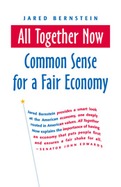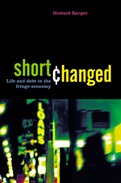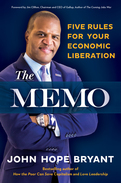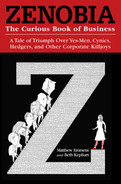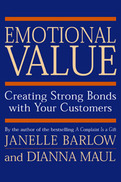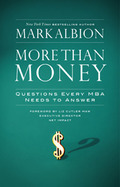2006
In the past 230 years, we've lost sight of Paine's vision. Our government has adopted a YOYO (you're-on-your-own) response in the face of even the most pressing national problems—diminished job security, the rising number of Americans without health coverage, stagnant incomes, decaying public schools, and more. “Here's a tax cut and a private account,” they tell us, “now go fend for yourself.”
It hasn't worked. The YOYO strategy has proven to be incapable of addressing the economic challenges that confront us and has instead led to a massive upward shift in wealth and opportunity favoring the few and deteriorating living standards and increasing insecurity for the rest of us.
All Together Now details an alternative WITT (we're-in-this-together) strategy for solving our most daunting problems. Detailing practical, collaborative responses to globalization, health care, employment, and other areas that could improve the lives of millions of Americans without increasing national spending, All Together Now shows that the challenges we face can be solved. Together, we can wield the tools of government to build a more just and equitable society.
• Exposes the destructive consequences of the 'you're on your own" approach to dealing with pressing societal problems
• Shows how a more collaborative 'we're all in this together" strategy can better resolve these problems and ensure that risks and benefits are shared equitably
• Details specific alternatives to current policies in areas like globalization, health care, and employment
2005
-
Chronicles how fringe economy businesses ruthlessly and systematically exploit the poor and the middle classes
-
Feature dozens of personal stories from individuals whose lives have been ruined by participating in this fringe economy
-
Includes hard-headed, practical recommendations for reforming fringe economy business practices
2017
Building on his personal experience of rising up from economically disadvantaged circumstances and his work with Operation HOPE, Bryant teaches readers five rules that lay the foundation for achieving financial freedom. He emphasizes the inseparable connection between “inner capital” (mindset, relationships, knowledge, and spirit) and “outer capital” (financial wealth and property). “If you have inner capital,” Bryant writes, “you can never be truly poor. If you lack inner capital, all the money in the world cannot set you free.”
Bryant gives readers tools for empowerment by covering everything from achieving basic financial literacy to investing in positive relationships and approaching wealth with a completely new attitude. He makes this bold and controversial claim: “Once you have satisfied your basic sustenance needs—food, water, health, and a roof over your head—poverty has more to do with your head than your wallet.”
Bryant wants to restore readers' “silver rights,” giving them the ability to succeed and prosper no matter what very real roadblocks society puts in their way. We have more power than we realize, if only we can recognize and claim it. “We are our first capital,” Bryant writes. “We are the CEOs of our own lives.”
2008
Enter Moira, a young woman responding to a cryptic help wanted ad that asks her to report to room 133A – but there are no directions, no sign of the room, and nobody seems inclined to help her find it. As she moves through the Zenobian maze, Moira makes some surprising discoveries about the power of teamwork and the qualities that define true leaders. Her story is interwoven with that of a long-time Zenobia employee named Gallagher, who watches and comments as Moira tries to find the ever-elusive room 133A.
Zenobia reminds us that imagination is one of the most powerful, and most overlooked, elements of business success. Like Moira, those who succeed see what is not yet there, keep faith in their vision, take risks to achieve it, and inspire others to join them. This unusual book will move readers to take a fresh and fearless look at their own organizations and to remember that leadership is not determined by title or position. Rather, as the want ad Moira answers puts it, “Creative persistence a prerequisite. A desire for the extraordinary an absolute must.”
2000
Janelle Barlow and Dianna Maul, with more than forty years combined experience in the service industry, detail five practices for adding emotional value to customer and staff experiences.
-
From the coauthor of the bestselling A Complaint Is a Gift
-
Offers customer service managers and supervisors dozens of proven ideas, innovative options, and powerful examples of organizations that systematically add emotional value to their customers' experience
2008
That's a question every MBA faces. A lot of time and money has been invested in you. Once you graduate, you're supposed to cash in that ticket for as much money and status as you can. Your parents and peers expect it, and with thousands of dollars of student loans, you may feel that there's really no other choice. You can't risk "wasting" that expensive education. It's the safe thing to do. Isn't it?
Not necessarily. In fact, when you measure success by more than money, what you think is your safest choice may actually be the riskiest. The “safe” choice can lead to enormous psychological and spiritual pain, costing you a chance to live your life. As Ralph Waldo Emerson observed, “Sometimes money costs too much.”
Mark Albion doesn't pretend to have all the answers, but his unique perspective can help you find yours. He guides you through a framework of four crucial questions and twelve principles to consider when making career decisions. Using tales of experience to caution and uplift, Albion helps you construct your personal, strategic "destiny plan."
An inspirational yet practical career guide, More Than Money encourages aspiring MBAs, current students, and graduates to give themselves permission to be who they really want to be and to find their path of service and fulfillment. As Albion says, in the end “we won't remember you for the size of your wallet as much as for the size of your heart.”


